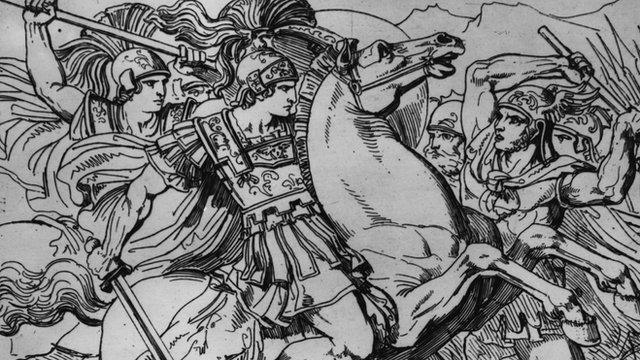Greek tomb was 'for Alexander the Great's friend Hephaestion'
- Published
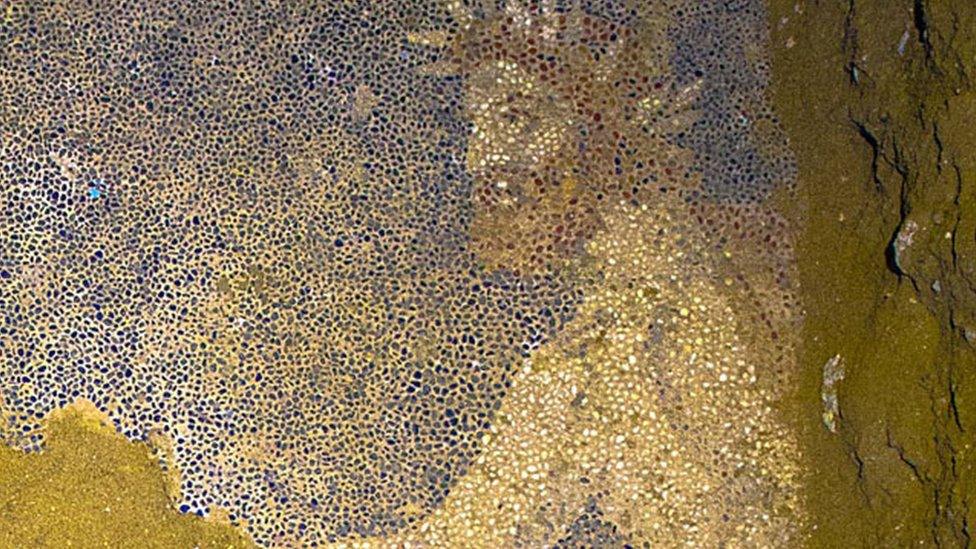
Among the finds at Amphipolis are mosaics and caryatids - larger than life statues of young women
The archaeologist investigating an ancient Greek tomb from the era of Alexander the Great has suggested it was a funeral shrine for his closest friend Hephaestion.
Greeks have been enthralled for months by the mystery surrounding the Amphipolis monument.
Now Katerina Peristeri has revealed that fragmentary inscriptions link the tomb to Hephaestion.
Hephaestion died less than a year before the Macedonian leader.
After his death in 325BC, Alexander was said to have ordered that shrines be constructed throughout the empire.
Monogram
Ms Peristeri's team believe the site at Amphipolis may have been designed by one of two architects, Dinocrates or Stesicrates, and built by Antigonus, another of Alexander's generals.
They also believe that tiny inscriptions found at the site show Hephaestion's monogram (two initials from his name).
However, not everyone was convinced by the team's revelations.
Prof Panayiotis Faklaris of Aristotle University of Thessaloniki told Greek radio on Thursday that there was no indication that the tomb had any connection to Hephaestion or that Alexander had ordered it to be constructed.
There had earlier been speculation that the tomb may be linked to Alexander the Great's mother Olympias or his wife Roxana.
.jpg)
Bones were found of a woman in her 60s
And earlier this year bones were recovered at the site that belonged to at least five individuals, including an elderly woman, a newborn child and two men, one of whom had been stabbed.
As well as 550 fragments of bone, animal as well as human, archaeologists have uncovered three vaulted chambers behind a facade decorated with two big marble sphinxes.
Within the chambers were a pair of caryatids - larger-than-life statues of young women - and a mosaic pavement depicting the abduction of the goddess Persephone by Hades, king of the underworld.
Alexander, who built an empire from modern Greece to India, was buried in Egypt although the precise location remains a mystery.
As his generals fought over his legacy, his mother, widow, son and half brother were all killed, most of them near Amphipolis.
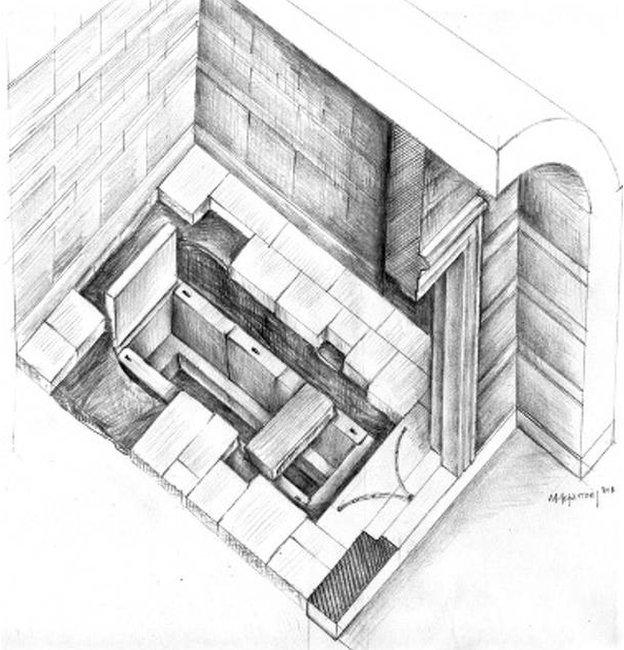
A sketch of the tomb

Amphipolis site
437 BC: Founded by Athenians near gold and silver mines of Pangaion hills
357 BC: Conquered by Philip II of Macedon, Alexander the Great's father
Under Alexander, served as major naval base, from which fleet sailed for Asia
1964: First official excavation began, led by Dimitris Lazaridis

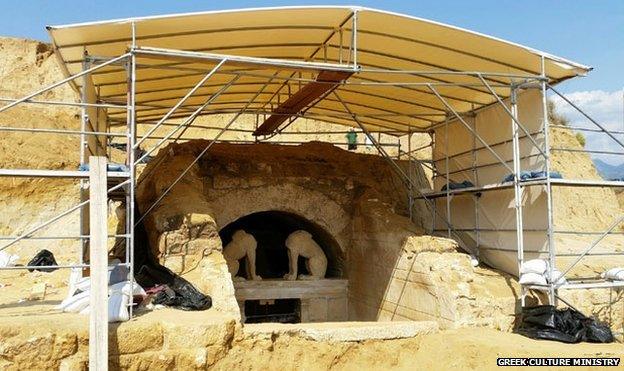
Two sphinxes guard the entrance to the tomb at Amphipolis
- Published19 January 2015
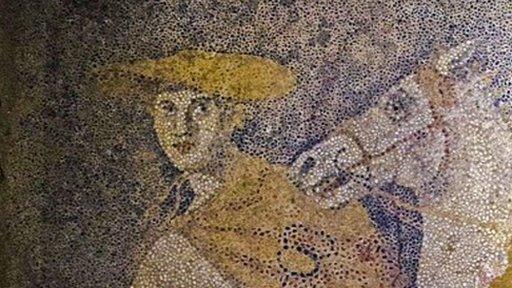
- Published22 September 2014
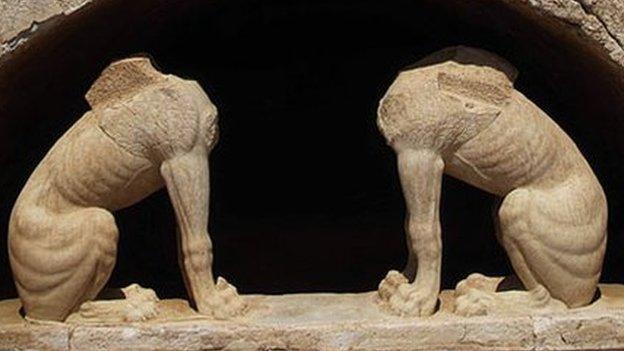
- Published12 October 2014
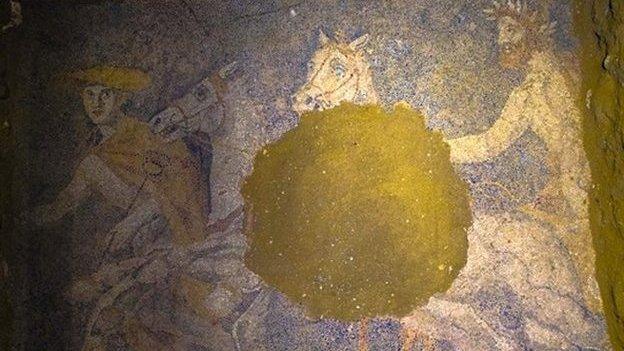
- Published15 July 2012
